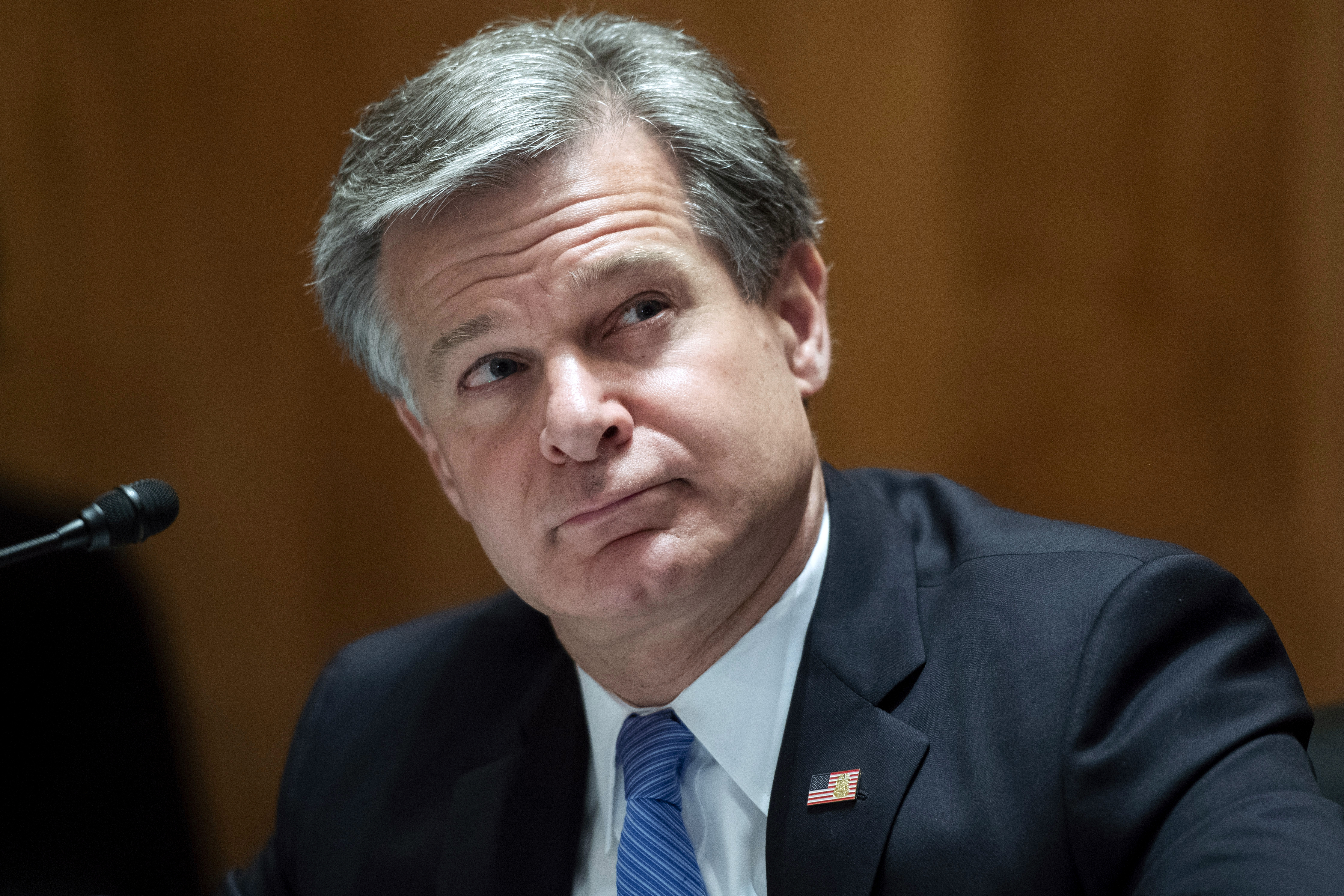Gov. Kathy Hochul suggested banning face masks across New York’s public transit system during a public safety briefing this week due to concerns about people shielding their identities while committing antisemitic acts.
It’s also during a week where huge portions of the state are under an air quality alert and NY sees its largest COVID spike in recent months. The move, she says, will help deter crime on public transit.
At a sweeping press conference on public safety, Hochul started by addressing two recent incidents that have targeted Jewish New Yorkers. The governor pointed to a Tuesday vandalism at the home of the Brooklyn Museum's director, and a reported train incident the night prior where "a group donning masks took over a subway car, scaring rider and chanting things about Hitler and wiping out Jews."
"We will not tolerate individuals using masks to evade responsibility for criminal or threatening behavior," she said. "My team is working on a solution, but on a subway, people should not be able to hide behind a mask to commit crimes."
Hochul said she has started discussions with Mayor Eric Adams and state lawmakers about a potential mask crackdown. A previous state law banning face masks in public was reversed in 2020 due to the COVID-19 pandemic when masks became mandatory in most settings.
Shortly thereafter, Adams voiced his support during an interview on the "Cats & Cosby" radio show. He made a comparison between people wearing masks to "hide their faces" and the Ku Klux Klan.
Get Tri-state area news delivered to your inbox.> Sign up for NBC New York's News Headlines newsletter.
"Dr. King did not hide his face when he marched and for the things he thought were wrong in the country. Those civil rights leaders did not hide their faces. They stood up. In contrast to that, the Klan hid their faces," Adams said Thursday.
News
"In our transit system, people have hid under the guise of wearing a mask for COVID to commit criminal acts and vile acts. I think now is the time to go back to the way it was pre-COVID, where you should not be able to wear a mask at protests and our subway systems and other places," he added.
Talk of a transit mask ban comes at a time when the number of positive cases in New York City is on the rise. Transmission levels citywide are nearly double what they were three months ago, according to city data. Hospitalizations, however, have remained steady.
Not only did masking in public become a regular practice for many New Yorkers in the past few years, but it was required throughout the MTA system and most public places for a large period of the pandemic. Although conditions have improved significantly since the height of the pandemic, many immunocompromised people and otherwise healthy individuals still wear masks daily on trains and buses to avoid contracting and spreading viruses.
The state's Department of Environmental Conservation has also issued an air quality health advisory for the New York City metro region from 11 a.m. until 11 p.m. Friday. The primary concern is ozone, according to the DEC, as the Air Quality Index is expected to hit levels that are unhealthy for sensitive groups.
Active children and adults and people with respiratory problems, like asthma, should reduce prolonged or heavy exertion outdoors, experts say. Officials also suggest more breaks. It advises people to watch for symptoms like coughing and shortness of breath and to follow the action plan they've pre-determined with their providers.
Check the latest weather alerts for your neighborhood here.
It's not yet clear if there is further support across the New York legislature or what path forward such a proposal would have, but the state would not be the first to consider such legal action against public masking.
Lawmakers in North Carolina this week passed a mask ban designed to crack down on people wearing one while committing a crime. The bill suffered significant pushback for originally barring people from masking for health reasons.
Hochul acknowledged such a ban would be complex and require a significant amount of nuance between health and religious reasons, protection from the elements, and holidays, like Halloween.
"I assure everyone, we understand how complex this issue is. And we're just listening to people and addressing their needs and taking them very seriously," Hochul said.



